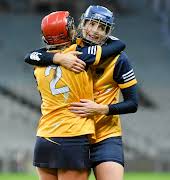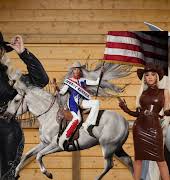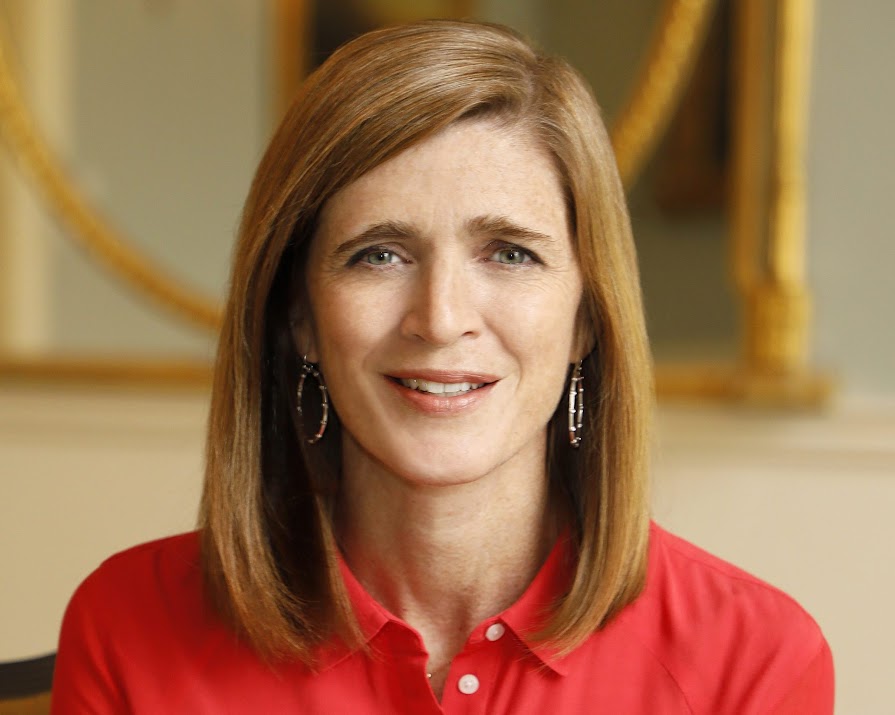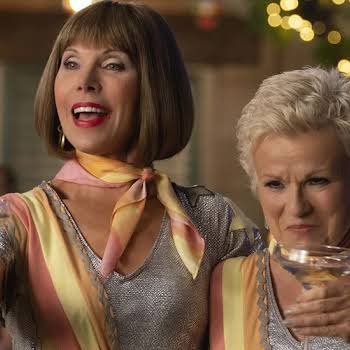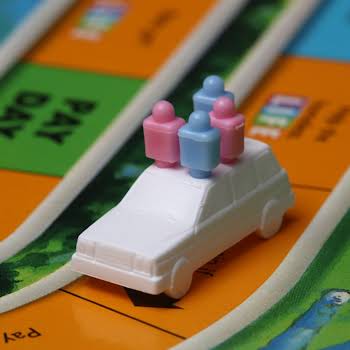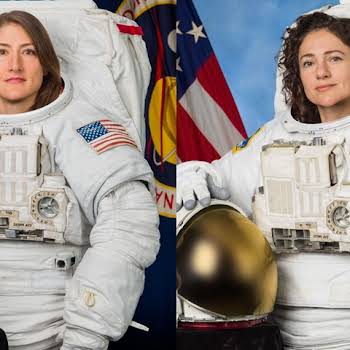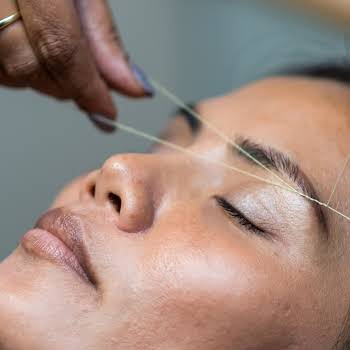
By Rosie McMeel
23rd Feb 2018
23rd Feb 2018
Whether fighting for human rights or penning Pulitzer-worthy literature, the former US Ambassador to the United Nations Samantha Power is a force to be reckoned with. ROSALEEN McMEEL meets the Irish academic and mother-of-two to talk life after the White House.
I arrive at The Merrion Hotel early on a cold Monday morning to interview Samantha Power, only to discover I’m locked out of our prearranged meeting room and the crew is hovering impatiently outside. Ambassador Power has been tied up recording a podcast and is running late. She’s a woman in demand. This is her last day on a four-day trip home in which she’s visited her alma mater, Mount Anville, joined her former classmates for a small reunion, appeared on The Late Late Show, was interviewed by Miriam O’Callaghan, and given a lecture inspired by TS Eliot’s impact on modern literature at the Abbey Theatre. When the large mahogany door finally opens, a tall, slim redhead, dressed in an understated black ensemble emerges. She’s sharp, articulate and ready to get to work. No warm-up needed.
Power is accustomed to relentless scheduling. If you think her long weekend sounds frantic, you should catch her in The Final Year, a documentary due for release in January, based on President Barack Obama’s final year in office, and features Power as part of his foreign policy team during their last year in office.
“I can’t even imagine what it must be like to even explain, let alone defend, the policies President Trump is pursuing,” she says of her former role. “I don’t know how you explain policies to strip 30 million Americans of health insurance. I don’t know how you explain walking away from the Paris Agreement when your counterparts come from countries that are disappearing under the ocean.”
Born in 1970 in London to Irish parents, Power lived in Ireland until she was nine years old, when her parents’ marriage broke down and she moved with her mother and brother to America. As a 22-year-old, she started her career in journalism and received a harsh introduction to international relations while reporting from places such as Bosnia, East Timor, Kosovo, Rwanda, Sudan, and Zimbabwe. Her time in Bosnia and subsequent law studies prompted her to write what would become a Pulitzer Prize-winning book on genocide – A Problem from Hell – gaining the attention of then-senator Barack Obama, who enlisted her as a foreign policy adviser. The role continued into Obama’s 2008 presidential campaign, though she opted to resign during the primaries after calling his then-rival Hillary Clinton “a monster” (in reference to her campaign tactics) in what Power thought was an off-the-record conversation.
After Obama won the presidency, he called upon Power again, this time to join the National Security Council, and then in 2013 to serve as United Nations Ambassador. She accepted, and successfully lobbied for intervention in Libya’s civil war. During this time, she also had two children with her husband, legal scholar Cass Sunstein.

The youngest-ever US Ambassador to the UN, Power became a leading voice internationally and the public face of US opposition to Russian aggression in Ukraine and Syria, negotiated sanctions against North Korea, lobbied to secure the release of political prisoners, and helped mobilise global action against ISIL. Obama describes her as “one of our foremost thinkers on foreign policy”.
After a resoundingly successful talk at the Abbey Theatre, the night before our interview, social media is abuzz, suggesting she run for office. She doesn’t balk at the idea. “I would, but I can’t now. I really have to be around for my kids. I’ve just spent eight years in the constant crunch of the National Security world and everything that entails.” Normal life has taken a back seat for long enough. “While I’ve always tried to put my children first, it was a very challenging time for my family. Wherever I was, outside of our apartment at least, we had a very sturdy security presence, and while that had some advantages – I didn’t have to find parking in New York – I didn’t want my kids to be raised believing that it was normal to live in the Waldorf Astoria and be driven around.”
At the time of our interview, Kim Jong-un was testing North Korea’s most potent missile yet, and the nuclear crisis looms large on the global agenda. Asked if she regrets not taking a tougher stance on North Korea, Power appears momentarily contemplative. “When we took office, North Korea already had a very advanced nuclear programme. This is a leader who is so isolated from the world that the non-military tools we have fundamentally require him to care that his country’s economy is getting destroyed, and so far we haven’t collectively been able to put in place a set of pressures that have budged him.”
“I negotiated the toughest sanctions against North Korea than any country in more than 20 years at the UN, and it’s not like there was some other tool available to us beyond massively increasing the pressure and cutting off his sources of revenue that he was pumping into his programme. In order to do that, we needed China. With the sanctions we put in place, we got China to a position that I think they never thought they would get to in terms of how tough they were prepared to be. So I can’t think of what it would be that we would do differently, but I can certainly say none of us were satisfied with where we ended up, given that our ambition was to get Kim Jong-un into denuclearisation talks, and we didn’t succeed in doing that in a sustainable way.”
“To be clear, responsibility firstly lies with Kim Jong-un and his defiance of China, his defiance of the United States, his defiance of international law. That compounded by Trump’s reckless taunts, insults, provocations, not with sober leadership and a careful process, but by undermining his own secretary of state and by taunting the leader of a country with nuclear weapons. It’s a very tense and unstable set of dynamics that have been unleashed.”
Given her unique insights, it’s reassuring to know she remains hopeful. “Right now, politics in America and the amount of new blood that is getting motivated to get in the mix gives me hope. Emily’s List, the organisation that cultivates women candidates and provides them with support as they run for office, reported that more than 22,000 had expressed interest in running for office in the last year. The previous record was about 1,000. That’s a 20-fold increase in the number, and half of those women are under 45.”
When it comes to how Ireland can improve human rights, Power hesitates before saying: “At a time when others are being persecuted or frowned upon, where the President of the United States is openly discriminating against Muslims, I think any country that can show a welcome hand to people fleeing brutal violence stands out. As we Irish see Irish Americans caught up in Trump’s immigration dragnet, it can be a reminder of how many people are feeling vulnerable in this country, refugees struggling to make ends meet for their own families – maybe there is a way to put oneself in their shoes. The more people who can do that, the more welcoming the country is. I know homelessness is a huge issue here, and we have that too in the US, and how we treat our most vulnerable is the best measure of who we are.”
“At a time when the US President is openly discriminating against Muslims, I think any country that can show a welcome hand to people fleeing brutal violence stands out.”
Power doesn’t feel fully informed about the Eighth Amendment debate, but doesn’t shy away from commenting. “What I can say is Europe is going to become even more important to Ireland with Brexit. With Trump cracking down on some of the principles that define human rights and dignity, Europe as a progressive force in the world is becoming even more important. That’s going to be critical for the country’s leadership to the degree that Ireland is fully in step with modern conceptions of human rights.”
While Power may be playing in the big leagues, she’s confident every citizen can make a difference. “Getting involved goes without saying, but I tell young people to know something about something. Right now, there’s a tendency to want to fight every war at once, rather than digging deep on one thing. So whether it’s homelessness, Syrian refugees or school curriculum, I suggest digging into a single issue rather than spreading yourself too thin. When I look back to Bosnia and my time there in my early twenties, and getting exposed to all of these things, it didn’t look like it was going to be transferable at all; but when I was at the UN working with refugees or peacekeepers or seeing US/ Russia diplomacy in action and being a part of that, so many of those slices I’d seen at play in Bosnia and years later, that experience certainly informed my judgments.”
Having struggled to “self-identify” as a feminist in the past, Power has openly U-turned in recent years. “When you see a leader of your country denigrating women, not hiring women or bragging about sexually assaulting women, that certainly makes you conscious of the need for people to stand up in defence of women. Before that, as one of not that many women in the US national security establishment and in the UN, these were the first jobs I’ve had in my career where I worked within institutions and in a way, I’d been spoiled by just being in my own company. I hadn’t had to deal with any of those office dynamics of seeing women being less inclined to be listened to or having to fight harder to get the same respect or benefits as their male counterparts.
Suddenly, I was seeing those same dynamics at work and thought, this is what they’ve been talking about all these years. It wasn’t that I wasn’t a feminist, it’s just that I wasn’t exposed to what women were going through. I also wasn’t yet a mother. I didn’t have a daughter. You look at your own child and you see from very early on the ways in which certain messages are sent and expectations are set, and you become conscious again of your need as a parent to fight for a world where she has exactly the same opportunities as her big brother.”
In April 2017, Power returned to teaching, as the Anna Lindh Professor of the Practice of Global Leadership and Public Policy at Harvard Kennedy School and Professor of Practice at Harvard Law School, where she is writing a book, The Education of an Idealist, which will chronicle her years in public service. Feminism has cropped up a lot during the course of her research. “There was this pack of amazing, strong women who went to the Balkans and put themselves at the centre of things, and I asked them if they felt self-conscious as female war correspondents, and their response was, ‘No, we were too busy being war correspondents.’”

She was also very taken with some of the steps her women colleagues took while working at the White House to create a women’s solidarity. “It was a wonderful girls’ club, and I hadn’t had that feeling before of needing that solidarity. They also made me much more self-conscious of each of our responsibilities as mentors toward younger women, and how important it was for us to bring younger women up, which I did my best on, but definitely all of us can do more.”
Power counts Jenna Lyons, former creative director and executive president of J.Crew, as one of her closest friends, but claims that Jenna’s influence on her wardrobe has been limited. “Everything I wore when I was UN Ambassador I ordered online. I had no time to take anything back, so I now have things that I thought would look great, but don’t.” Her trademark style includes a collarless shirt, and Theory suits. “When
I went to my first State dinner at the White House, which was a very glamorous affair, I was wearing this long green dress, and they asked, ‘Who are you wearing?’ I had to get Cass to read the label to me. Someone snapped a photo of us. It was Badgley Mischka, but he couldn’t read it, and was calling it Badger… It was an adjustment to realise people were watching in that way.”
Her understated approach to dressing means that the importance of her message is all that’s communicated. No one remembers the dark tailored suit she wore during her speech at the security council about the Syrian government and its allies Russia and Iran bearing responsibility for the killing of civilians in Aleppo, but few can forget her powerful questioning: “Is there no execution of a child that gets under your skin?” she asked. “Is there literally nothing that shames you?”
“I didn’t think about what I was wearing that day,” she says. “I barely brushed my hair.”
This interview was originally published in IMAGE Magazine January-February 2018 issue

